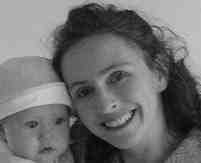| Author | |
alicegunther
Forum All-Star


Joined: Jan 28 2005
Location: N/A
Online Status: Offline
Posts: 1992
|
| Posted: Feb 18 2007 at 12:18am | IP Logged
|
 |
|
SuzanneG wrote:
"and the hope set before us is that we can foster the good so as to attenuate the evil; that is, on condition that we put Education in her true place as the handmaid of Religion. "
Hmmmm....what do you think Genevieve? Is this what you're talking about? She doesn't elaborate, but maybe she will later....it's not like she's at a loss for words for furthering a point (six volumes!!!)   
|
|
|
I have read ahead as far as chapter 6, and CM really does elaborate on this later--quite well, I might add!
__________________
Love, Alice
mother of seven!
      
Cottage Blessings
Brew yourself a cup of tea, and come for a visit!
|
| Back to Top |



|
| |
Lissa
Forum All-Star

Joined: Jan 28 2005
Location: California
Online Status: Offline
Posts: 748
|
| Posted: Feb 18 2007 at 11:40am | IP Logged
|
 |
|
After jumping up and down over the prospect of this discussion, I have been unable to read any of the Vol 6 threads until now!
Genevieve wrote:
Thank you Willa for starting the ball on this! I'm enjoying these thread immensely.
"it does not matter what a child learns but only how he learns it"
This thread seems to be prevalent even today. Even if knowledge is not obtained, at least the child has "learned to think" and picked up good "study skills". I'm not saying these are not good things in itself. However, I believe critical thinking skills & ability to "study" well should be the servant to knowledge. For what use would these tools be if there were no substance to apply them. I wish she would carry on the importance of knowledge to loving and serving our Lord. For it seemed as if we have come to a dead end. For what purpose is knowledge for isn't it also a means to an end. Doesn't classical education refer to the "free man"? Yet even freedom to think, similar to the freedom God gave us, is so that we can freely choose God. Am I making sense?
"teacher shall teach less and student learn more"
I am a little trouble with this. How does lesson planning fit into this? Rabbit trails and even narration prompts seem directed to teach. It seems like CM wanted children to draw their own conclusion and connections. She prescribes that often it is better for the teacher to step aside and allow the idea (books, art, music, nature) to "speak" directly to the child. Yet we can't hope that the child can figure the laws of physics all by himself. it seems as if there is a fine balance between serving ideas and connecting all the dots for them. How do lesson planning and directed questions fit into this?
|
|
|
Genevieve, I see CM making a distinction between certain branches of learning. Regarding history, literature, geography, civics--the humanities, basically--she does not want the teacher to come between the book and the child.
But she does say, "The success of the scholars in what may be called disciplinary subjects, such as Mathematics and Grammar, depends largely on the power of the teacher, though the pupils' habit of attention is of use in these too."
And this: "They require a great variety of knowledge,––about religion, the humanities, science, art; therefore, they should have a wide curriculum, with a definite amount of reading set for each short period of study. The teacher affords direction, sympathy in studies, a vivifying word here and there, help in the making of experiments, etc., as well as the usual teaching in languages, experimental science and mathematics."
So I read this as laying out two types of "teaching" role. Languages, lab science, math: is CM saying these require a more direct "teacherly" style? Versus subjects which can be discussed in literary books (this includes aspects of science), and for those subjects, the teacher should attempt to intrude as little as possible?
As for rabbit-trails, I think she does discourage that--"(j) No stray lessons are given on interesting subjects; the knowledge the children get is consecutive."--at least as far as what happens in the formal lesson hours. But her vision of morning lessons and free afternoons certainly allows for a great deal of child-initiated exploration of subjects which have captured his interest.
__________________
Lissa
|
| Back to Top |


|
| |
Willa
Forum All-Star


Joined: Jan 28 2005
Location: California
Online Status: Offline
Posts: 3881
|
| Posted: Feb 19 2007 at 10:13am | IP Logged
|
 |
|
Lissa wrote:
| But her vision of morning lessons and free afternoons certainly allows for a great deal of child-initiated exploration of subjects which have captured his interest. |
|
|
This reminds me of where CM mentions in the next chapter:
The mistress of an Elementary School writes,––"The father of one of my girls said to me yesterday, 'You have given me some work to do. E. has let me have no rest until I promised to set up my microscope and get pond water to look for monads and other wonders.'"
CM said that this was actually a wonderful proof of the effectiveness of a living education.... starting with ideas and moving by oneself into further pondering and working with the ideas.
I was thinking that this is one way where our homeschool job is a bit different from a schoolteacher's job. At a school, if the teacher zips off on a rabbit trail of her own, the children are pulled along for the ride whether they will or no and lose some of that self-learning aspect.... making connections for themselves.
We are parents and teachers so we wear both hats. I am sure the details look different in each family, how that is done. It is probably more integrated than a schoolteacher with a crew of children from different types of homes could possibly be.
__________________
AMDG
Willa
hsing boys ages 11, 14, almost 18 (+ 4 homeschool grads ages 20 to 27)
Take Up and Read
|
| Back to Top |


|
| |
mamafitton
Forum Newbie

Joined: Feb 15 2007
Online Status: Offline
Posts: 4
|
| Posted: Feb 19 2007 at 3:12pm | IP Logged
|
 |
|
Sorry this is long!!!!!!
I have had the CM series and the CM Companion and McCauley's book and never read them - thank you for initiating this book discussion!
Maybe there is a place in her writings that are more anti-Catholic, but so far it seems to me (having read the Preface, Intro and Self-Ed) that is in line with Catholic teaching/thought. I will have to look around for a more specific criticism, but this should prove to be interesting discussion!
As I have "deinstitutionalized" (as I call it) my children from a Catholic school, I have found that the freedom to pursue interests and read lots of good books and spend time with fmaily and do more chores around hte house has made sucha difference in our fmaily!
I have been changing my emphasis and style (hs ing for 2 yrs now), and I believe that the narration and discussion, and reading aloud are the parts missing in our school. It came to me when I started an ancient history unit study using The Story of the World and saw how well that went with my kids ages 8 and 11. Reading aloud and taking turns, discussing and narrating what was read, reading "extra" books from the library to supplement and see pictures... For me personally, I think this is what she is talking about. Before reading the CM I had decided that I want to change over to Catholic Heritage Curricula to make it more authentically Catholic and have a more structured plan, but yet have some flexibility and use narration and discussion. I work 4 nights a week and with ages 3,4, 8, 12 I am having a bit of trouble staying on track.
What do y'all think of this? How have you incorporated these ideas in your hs?
Maria in NC
|
| Back to Top |


|
| |
Helen
Forum All-Star


Joined: Dec 03 2005
Online Status: Offline
Posts: 2826
|
| Posted: March 07 2007 at 5:24pm | IP Logged
|
 |
|
I'm sorry, I'm still reading very slowly ...
Could someone shed some light on who the "Scottish school of philosophers" were that came to her "aid" with their "doctrine of desires" and led her to believe
in the importance of curiosity.
Page 11
I'm just curious 
__________________
Ave Maria!
Mom to 5 girls and 3 boys
Mary Vitamin & Castle of the Immaculate
|
| Back to Top |



|
| |
Paula in MN
Forum All-Star


Joined: Nov 25 2006
Location: Minnesota
Online Status: Offline
Posts: 4064
|
| Posted: March 07 2007 at 6:04pm | IP Logged
|
 |
|
Helen, I'm so glad you asked this question because I have wondered the same thing but didn't want all of you to think I was being *thick*!
__________________
 Paula Paula
A Catholic Harvest
|
| Back to Top |



|
| |
Willa
Forum All-Star


Joined: Jan 28 2005
Location: California
Online Status: Offline
Posts: 3881
|
| Posted: March 08 2007 at 9:35am | IP Logged
|
 |
|
Helen wrote:
| Could someone shed some light on who the "Scottish school of philosophers" were that came to her "aid" with their "doctrine of desires" and led her to believe in the importance of curiosity. |
|
|
If someone else knows more about Scottish philosophy than I do, please jump in. I don't think there's an easy answer to the question.... for instance, I couldn't find anything on the Ambleside site except a general link to the Scottish philosophers.
I did a bit of googling about the topic.
Some background -- Apparently there was a sort of Scottish Enlightenment in the late 18th and early 19th century. It sort of rose in contradiction to Locke's philosophy. Here is a Catholic Encyclopedia article
Here's another secular source: summary
Here is an article from the Acton Institute which is usually pretty trustworthy.
Adam Smith and David Hume were part of this school, and James Mill and his son John Stuart Mill were influenced by it. Some of the later Scottish theorists were skeptics and utilitarians.
I read through a few summaries of their thinking but could not find anything precisely summing up this "doctrine of desire".However, I did gather from skimming essays from some of the earlier theorists that they were trying to build some kind of natural law foundation for government and economics and education. SO maybe the "doctrine of desires" was about the axiom that if there existed a desire for something in the human person, that the corollary is that there is some potential fulfillment for the desire.
At any rate, I read something in John Stuart Mill (a later Scottish philosopher and logician) that talked as if it were a given theory that:
When a desire is implanted in a person, that means that there is some means of fulfillment to be had for that desire. Eg when there is hunger, it follows that there must be a way for hunger to be satisfied.
In JS Mill's exact words:
"We are told that the desire of immortality is one of our instincts, and that there is no instinct which has not corresponding to it a real object fitted to satisfy it." (he is talking about immortality and debunking some of the natural law arguments in favor of it, but I just quoted this to show the premises he was using).
That is my best guess about the Scottish philosophers -- if it were true, I presume that CM was saying something like this in relation to Curiosity (the desire) and the means to satisfy it (Knowledge).
(I am thinking that CS LEwis must have been influenced by this a bit in some of his apologetic arguments, but that's a side point).
I feel I am creeping out on a limb a bit here -- like Tigger climbing the tree and not sure if he can get back down! -- if someone knows more about this than I do please feel free to clarify, -- anyway, I had fun googling to try to see what I could find.
__________________
AMDG
Willa
hsing boys ages 11, 14, almost 18 (+ 4 homeschool grads ages 20 to 27)
Take Up and Read
|
| Back to Top |


|
| |
Willa
Forum All-Star


Joined: Jan 28 2005
Location: California
Online Status: Offline
Posts: 3881
|
| Posted: March 08 2007 at 9:55am | IP Logged
|
 |
|
mamafitton wrote:
Reading aloud and taking turns, discussing and narrating what was read, reading "extra" books from the library to supplement and see pictures...
What do y'all think of this? How have you incorporated these ideas in your hs? |
|
|
This is what I have been doing.
I have ages 17, 14, 11, 7 and 4 at home, and 2 graduates.
Sometimes it feels a bit scattered and like juggling lots of plates, and I don't even work outside the home, but the kids seem to learn more than they do using a more structured approach.
__________________
AMDG
Willa
hsing boys ages 11, 14, almost 18 (+ 4 homeschool grads ages 20 to 27)
Take Up and Read
|
| Back to Top |


|
| |
nissag
Forum All-Star


Joined: Nov 23 2006
Location: Massachusetts
Online Status: Offline
Posts: 1511
|
| Posted: July 24 2007 at 8:57am | IP Logged
|
 |
|
Quote:
"teacher shall teach less and student learn more"
I am a little trouble with this. How does lesson planning fit into this? Rabbit trails and even narration prompts seem directed to teach. It seems like CM wanted children to draw their own conclusion and connections. She prescribes that often it is better for the teacher to step aside and allow the idea (books, art, music, nature) to "speak" directly to the child. Yet we can't hope that the child can figure the laws of physics all by himself. it seems as if there is a fine balance between serving ideas and connecting all the dots for them. How do lesson planning and directed questions fit into this?
|
|
|
Ahhh, this is where I see Classical Education fitting perfectly into Charlotte Mason's philosophy. We, as educators, serve our pupils the grammar - the fundamentals, the chisels and hammers - they (our children) are responsible for using those tools to draw their own connections. At a later age, we teach them to reason (logic). At that time, they will use both the grammar and logic together to draw more logical conclusions and connections. Later, they learn to speak and write eloquently, which they will use to discuss their connections and conclusions - about any subject - based upon facts and logic. All the time, the children are disciplining their minds through narration, copywork, and habit-formation. This is essential to knowing how to study at each classical stage.
The teacher must prepare herself for guiding her student by knowing what material will be used (the books to be read, the trail to be taken). She can anticipate questions that will arise, or plan to highlight some important point as an object lesson. All of this will be in the context of a discussion.
Does that make sense? I'm not sure that I was clear.
And I'm exceedingly late to this discussion, but I am enjoying reading through the posts.
__________________
Nissa
Deacon's wife, mother of eleven, farmer, teacher, creator, cook.
At Home With the Gadbois Family
|
| Back to Top |



|
| |
|
|


 Topic: CM Vol. 6 discussion -- Introduction
Topic: CM Vol. 6 discussion -- Introduction














 Paula
Paula
